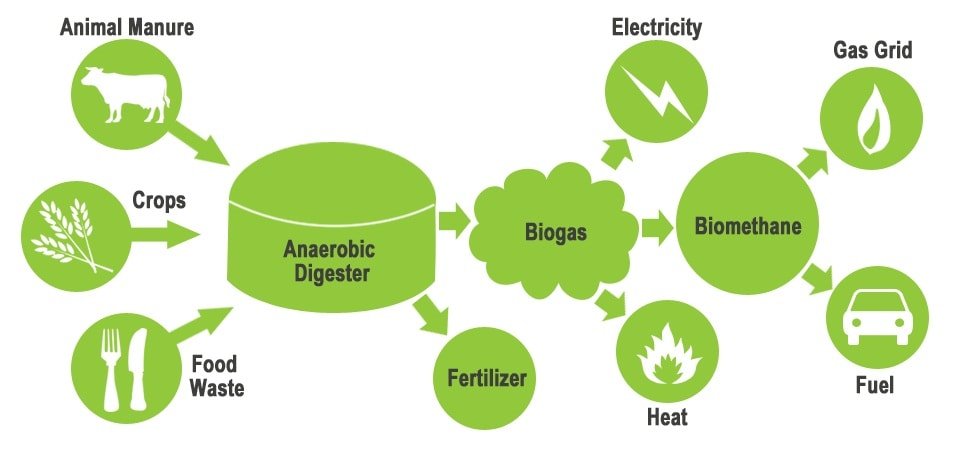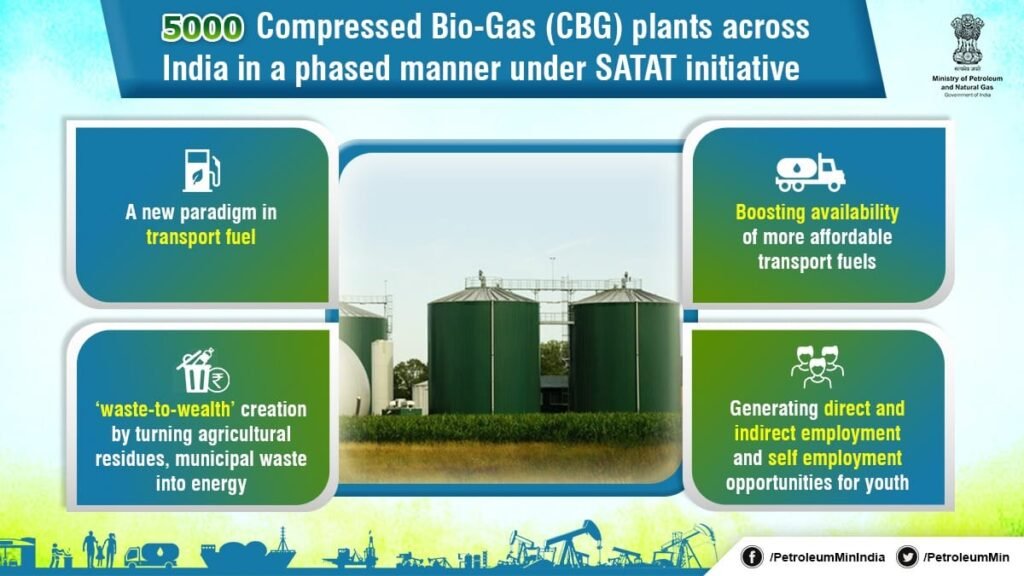India is world’s third largest crude oil importer as it heavily relies of fossil fuels to satiate its energy demands. This is not only hurting India’s fiscal budget but also growing climate change accountability.

Indian Government is determined to rejig its energy mix to increase natural gas component from current 6.5% to 15% by 2030.
Its work in this direction is prominent from launch of schemes like Sustainable Alternative Towards Affordable Transportation (SATAT) which envisages setting up 5,000 Compressed Bio-Gas (CBG) units across the country to produce 15 million tonnes of CBG by 2023 – this could attract investments worth Rs 2 trillion as per Oil Ministry.
CBG is produced from bio-mass feedstock such as agricultural residue, cattle dung, sugarcane press mud, municipal solid waste, etc. Since properties of CBG are like Compressed Natural Gas (CNG) – it can replace CNG in automotive, industrial, and commercial areas.

In fact, Ministry of Road Transport and Highways has permitted usage of bio-compressed natural gas (bio-CNG) for motor vehicles as an alternate composition of CNG.
Under SATAT scheme, Oil Marketing Companies (OMC) invite expression of interest from potential entrepreneurs to set up CBG plants, and supply CBG to OMCs for sale as automotive & industrial fuel.

Key enablers of the SATAT scheme include off-take and marketing of CBG by OMCs, assured long term pricing, priority sector lending, central financial assistance of up to Rs 10 crore per project provided by Ministry of New and Renewable Energy (MNRE), nominal bank guarantee, fortnightly invoice clearance, liberty to Plant Owners to sell excess CBG to consumers other than OMCs.
The Government is also working towards synchronization of CGB with City Gas Distribution pipelines for seamless evaluation and sale/ distribution of CBG.

Widespread production and usage of CBG enabled by SATAT will not only reduce India’s dependency on crude oil imports but also enhance farmers’ income and rural employment. But the benefits of CBG don’t stop there. Solid by-products of CBG can be used as bio-manure which can enhance agricultural output.
Thus, the entire CBG value chain has economic and environmental advantages – waiting to be tapped by entrepreneurs.
Reference- Economic Times, Business Standard, The Hindu, Press Information Bureau






